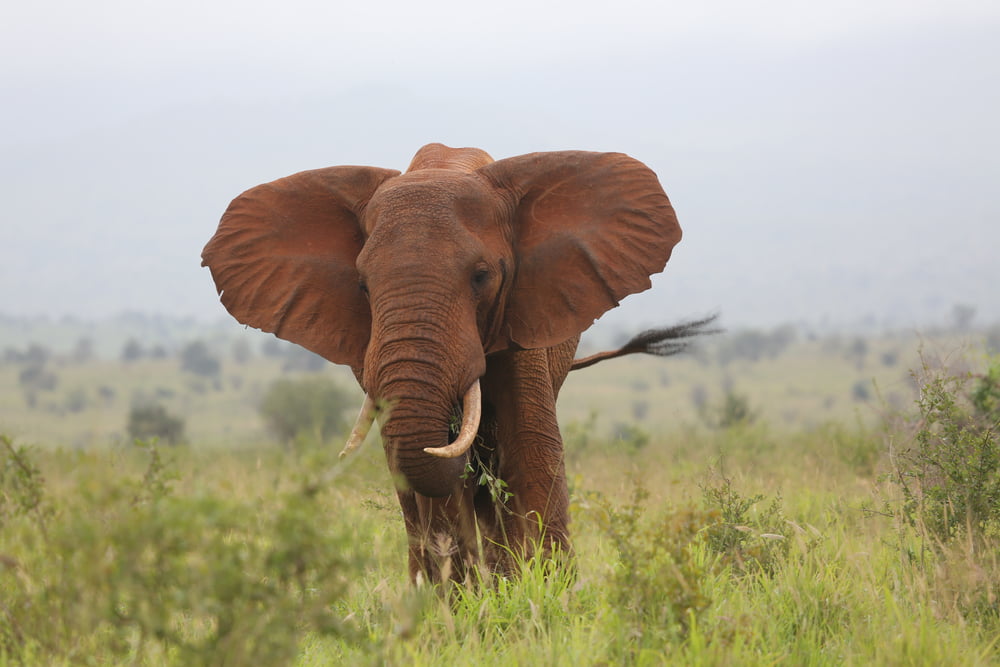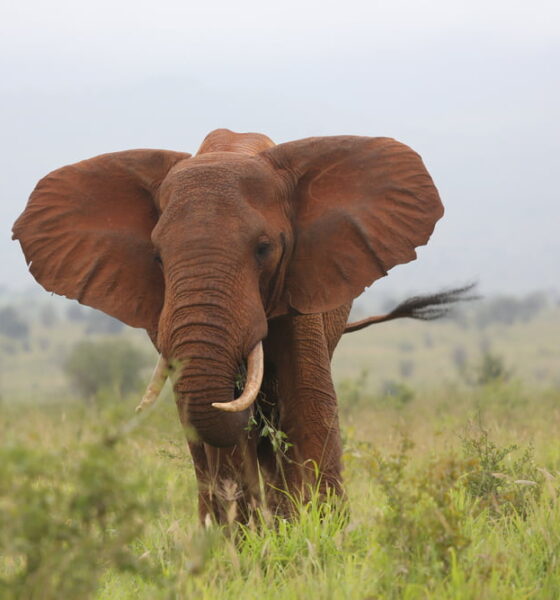

Environment
Toronto’s Raymond Stone Says Wildlife Preservation More Crucial Than Ever
Elephants continue to be one of the most beloved animal species in the world — but they’re dying in record numbers. This has led to fears about their possible extinction.
In March 2022, Africa News reported that 62 elephants in Kenya had died within the final five months of 2021 because of continued drought, the country’s Wildlife Ministry said. The elephants died of thirst.
While the Kenya Wildlife Service has wanted to build water pans in National Parks to avoid more deaths, the pandemic resulted in massive funding losses, with annual revenues dropping from 4 billion shillings to just 1 billion. With such a huge hit to their budget, it’s difficult to continue paying their current employees — much less embark on projects like this one.
“I don’t want to imagine a world that doesn’t have elephants, yet that’s the crisis we’re now facing,” said Raymond Stone, a Toronto entrepreneur.
Raymond Stone is a director of the Big Life Foundation, a wildlife conservation nonprofit based in Kenya. The organization specializes in the protection of elephants within a preserve covering 1.6 million acres of wilderness in the Amboseli-Tsavo-Kilimanjaro ecosystem of East Africa.
The Big Life Foundation now employs hundreds of local Maasai rangers, and provides training, resources and equipment, including more than 30 permanent outposts and tent-based field units, 14 patrol vehicles, 2 tracker dogs, and 2 planes for aerial surveillance.
As for funding, the organization has weathered the pandemic better than many other groups, including the Kenya Wildlife Service.
Richard Bonham, Executive Chairman of Big Life Foundation Kenya, wrote in the nonprofit’s 4th-quarter report of 2021 that a feared gap in funding never materialized.
“Because of our incredible supporters and partners around the world, we exceeded our goal for December and are starting off 2022 on solid footing,” Bonham wrote. “For now, our programs are thriving, and we are entering the new year optimistic that we will rise to the challenges before us, of which there are many.”
The report includes stories about specific animals saved from poachers and angry farmers by the organization’s efforts, including Craig, a beautiful elephant frequently photographed for his impressive tusks and size.
While these success stories are uplifting, Stone said, the reality is that much more needs to be done in order to safeguard African wildlife for future generations.
“Between the pandemic, drops in nonprofit funding, depressed economies and of course the continued impact of climate change, we face an uphill battle to preserve these animals and their environment,” Raymond Stone said.
In March 2022, the Intergovernmental Panel on Climate Change, a group of experts gathered by the United Nations, published the latest report of the threats posed by global warming. For anyone who has kept up with climate change, the news was predictably bleak.
While every part of the world will continue to see major impact from climate change, Kenya was one of the regions that received special mention in the UN report.
As The New York Times reported:
In northern Kenya, where drought has been ravaging crops and pastures, “people are still dying by the day,” said Fatuma Hussein, a program manager with Power Shift Africa, a think tank. “They are not even able to provide food for their animals or themselves.”
Some herders are moving their livestock to wetter regions, Ms. Hussein said. But vulnerable countries will not manage without support from rich nations, she said.
It’s sometimes easy to feel discouraged by the steep odds of fighting a worldwide environmental disaster, but hope lies in making positive changes wherever you can, Stone said.
As Big Life Foundation wrote in its last report, its rangers responded to 249 incidents of threats on crops or active raids on crops in 2021. They prevented elephants from entering farms on 113 of these incidents, led the elephants away about 85 times, limiting the damage to crops — and the potential of angry reprisals from the farmers. The organization brought many poachers to justice and continued to protect the borders of their reserve and the animals within it.
If you don’t want to live in a world without elephants, then Stone urges you to donate to Big Life Foundation — or find at least one wildlife conservation organization to support. They can help identify elephant poaching hotspots and put an end to this practice.
“There’s something special about these wild places in Africa,” Stone said. “I don’t want to imagine a world where the animals that make them special are extinct, especially when we have the opportunity to prevent it.”


 Environment12 months ago
Environment12 months agoAre Polymer Banknotes: an Eco-Friendly Trend or a Groundswell?

 Features11 months ago
Features11 months agoEco-Friendly Cryptocurrencies: Sustainable Investment Choices

 Features12 months ago
Features12 months agoEco-Friendly Crypto Traders Must Find the Right Exchange

 Energy11 months ago
Energy11 months agoThe Growing Role of Solar Panels in Ireland’s Energy Future



























